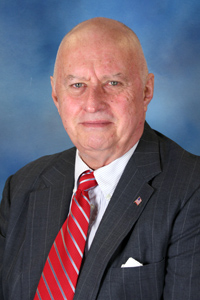 [Editor’s Note: This blog is the third in a series of interviews with faculty and staff at the Law School.]
[Editor’s Note: This blog is the third in a series of interviews with faculty and staff at the Law School.]
A member of the Law School faculty since 1970, Professor Kircher teaches torts, insurance, products liability, and seminars in advanced issues on torts. He received the Marquette University Faculty Award for Teaching Excellence in 1986 and the Marquette Law Review Editors’ Award in 1988. In 1993 he received the American Bar Association Tort and Insurance Practice Section’s Robert B. McKay Award for distinction in the teaching of torts and insurance law. Before coming to the Law School, he practiced law and subsequently was Research Director of the Defense Research Institute. He has chaired the Wisconsin Judicial Council and the Wisconsin Supreme Court Board of Bar Examiners. He is coauthor of Punitive Damages: Law and Practice. Professor Kircher is a member of the Editorial Board of the Defense Law Journal, and was Editor of the Federation of Defense & Corporate Counsel Quarterly.
Question: How did you first become interested in insurance and tort law, and what do you find most intriguing about those areas of law?
My interest in the two subjects started in law school, most probably because they were taught by my favorite professor, Jim Ghiardi. It developed in my first three years after law school due to my work in a defense firm that handled cases in those two areas. It developed further and faster thereafter when Jim asked me to join him as his second-in-command at a legal think tank, the Defense Research Institute, that concentrated its work in those two areas. Also the two subjects are interesting to me because the law constantly changes. In fact, by the time I left the Law School the Wisconsin Supreme Court had changed about 25 percent of what I learned in first-year Torts. I would expect that most of the law I learned in my other courses has remained nearly the same.

